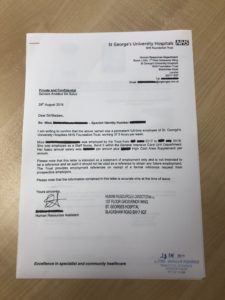I need a translation, should it be official? how do I know? The world of sworn translation and translation in general can be confusing for the uninitiated, especially when we start talking about the different types of translation available. Yes, there are different types of translation. So, let’s take a look.
Normal translation and Sworn translation.
Firstly, we are going to differentiate between two main types of translation: first, normal translation (there are many subtypes of translation here, but we will go into those at another time); and second, sworn or certified translation.
So, what are the differences and which do I need? Well, we’ve talked many times about what a sworn translation is, sufficed to say that a sworn translation is equivalent to an “official” “legal” translation, whilst a normal one isn’t. So, which do I need?
Professional translators
Well, it depends if the end goal is to present the original document to an official body or a body that requires a official translation or not. If, for example, you want to translate a contract in order for your client to be able to understand it and/or sign it, then then you don’t require a certified translation, the translation takes on the role of the original. However, if you have a contract that has already been signed and you need it to be translated for an official body or body that requires a certified translation, this is when you need an official translation. We get many calls from lawyers and legal professionals who have never needed a translation before and are unaware of the difference, but I hope with this explanation clears it up.

Speaking of questions we get from legal professionals, another question we get from some professionals concerns why we ask them to give us the name of their client which appears in the document that is to be translated. I got a call this very week from a lawyer that did not understand why we asked her to give us the name her client used in a document written in Arabic, they name is in the document, so why can’t we just translate it? Well, the answer is simple, in certain languages like Arabic, Russian or Chinese; the alphabet changes and the name that your client may use for official purposes in Spain, for instance, may be different to the translation.
For example, the client may use the name Abderrahman in his official dealings with the government, but the translator may translate it with one “r” instead of two or even as Abdel-Rahman. This is why we ask, to make sure that all of your client’s needs are met and to avoid hiccups later on.
I hope you have found this article interesting and maybe it has helped you to better understand what is needed when translating, or in this case what translation you need. Here at the CBlingua Malaga translation agency we like to keep people informed and that’s why we publish articles regularly on different translation and sworn translation related topics. Keep browsing this website or any of our other websites to know more.
If you need to have a sworn or certified translation, or even just a standard translation, done or you have any queries, please write to us at info@cblingua.com
